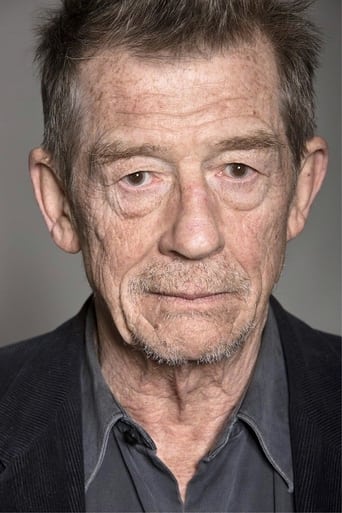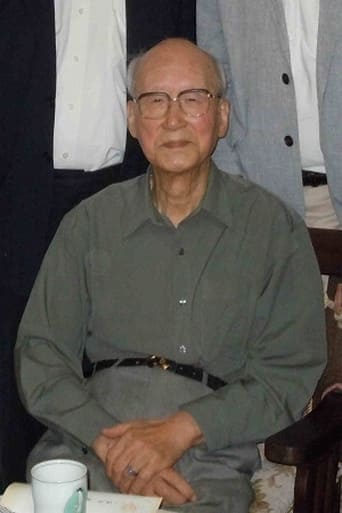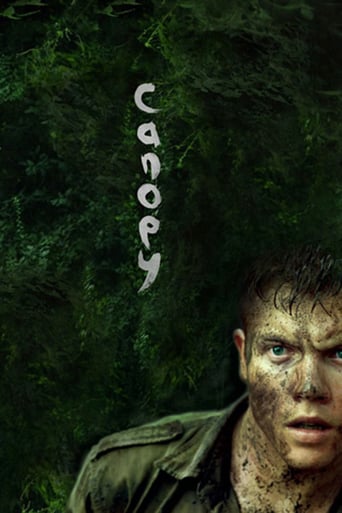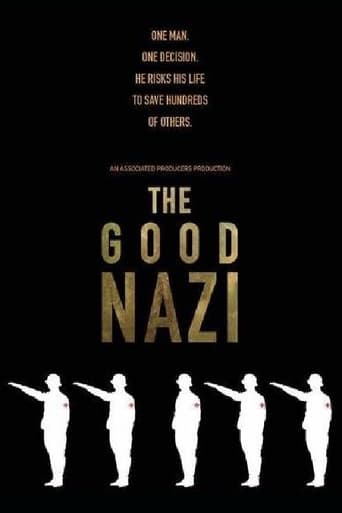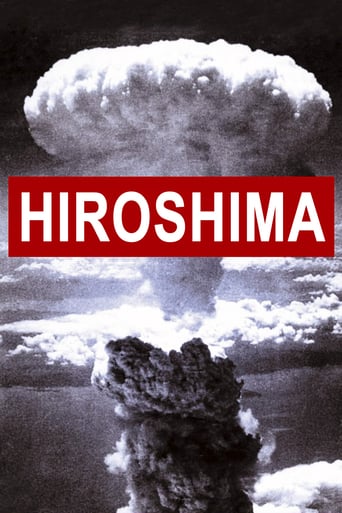
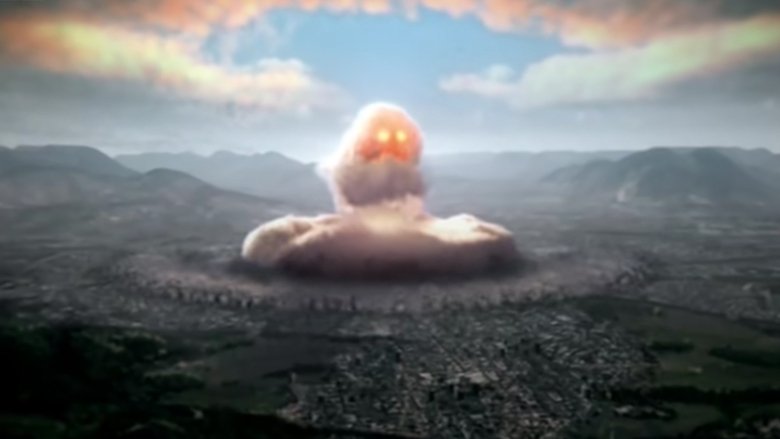
Hiroshima (2005)
The documentary recounts the world's first nuclear attack and examines the alarming repercussions. Covering a three-week period from the Trinity test to the atomic bombing of Hiroshima, the program chronicles America's political gamble and the planning for the momentous event. Archival film, dramatizations, and special effects feature what occurred aboard the Enola Gay (the aircraft that dropped the bomb) and inside the exploding bomb.
Watch Trailer
Cast


Similar titles
Reviews
Sadly Over-hyped
It is a performances centric movie
Pretty good movie overall. First half was nothing special but it got better as it went along.
There are moments in this movie where the great movie it could've been peek out... They're fleeting, here, but they're worth savoring, and they happen often enough to make it worth your while.
Although this is a well made documentary incorporating archive footage, interviews and 'dramatizations', it seems to me to be yet another example of the victors re-writing history. If I was a bomb- obsessed war-monger that wanted to conduct the ultimate experiment in nuclear technology and military power, even when it was not necessary, I would make a film like this to justify my actions and help make an entire nation feel much better about committing mass murder. This has been the official line since the bombs were dropped and they have successfully convinced most people that they were absolutely necessary. Otherwise, the idea of murdering close to 200,000 civilians is just impossible to confront. I think this is encapsulated by the poor, tight-lipped pilot who stubbornly refuses to have any emotion or doubt about his actions. This film seems to be for people like him.It's almost certain that these bombs were unnecessary. Thousands of tonnes of bombs had already been dropped, the Soviets had become involved and Japan was beaten. Weeks earlier, on July 12, 1945, Hirohito revealed that he was ready to end the war as long as the monarchy be granted immunity from war crimes - The US only accepted these conditions after dropping two atomic bombs on the country. One bomb was unnecessary, the second was borderline sadistic. Truman and others kept bumping up estimates of lives saved to a million, while military documents suggested 46,000 as a worst case scenario. There is virtually no mention of these circumstances in the film which demonstrates clear bias. If you come away thinking it was necessary, then the film has successfully deceived you, but it has failed as a documentary.
Hiroshima: BBC History of World War II is a documentary about the atomic bomb drop on Hiroshima during World War II. What is great about this particular documentary is that it tells the story through both sides, including eye witness testimonies of the Americans and the Japanese. The documentary is told in sequential order, starting with what was going on before the bomb dropping, the events that led up to it, followed by the immediate outcome and the future outcome. It begins by showing how the Americans tested the bomb and were triumphant, and it tells through an eye witness account President Truman's reaction to this. He gave Japan the choice to surrender, but Japan refused. The lead up to the bomb dropping was very interesting when looked at through both perspectives (the Americans and the Japanese) because while America was confident in their imminent victory after their success in creating the bomb, Japan was still preparing for an all- out invasion. After the atomic bomb was created, tested, and proved ready to use successfully, the documentary gives us insight into the minds of the chosen crew who were to man the planes that were to drop the bomb on Hiroshima. At the same time that these men were preparing to drop the "bomb to end the war", Japan was continuing to prepare for an invasion, not knowing what was to come. There were a few selected stories told by the people who actually lived through the bomb dropping about what their lives were like, and what the day was like before it occurred. All of them said that the only thing they can really remember about that day before it happened was that it was one of the most beautiful days. As the Japanese began their day just like any other, three American planes flew closer and closer to their destination. The documentary continues on by showing pictures and footage of the bombing afterwards. The same people who were describing perfect skies and perfect days began to tell a story about sadness and death. The entire documentary in itself is very sad, but the most disheartening part is being shown the pictures of the aftermath and the affects it had on people during that time. America cheered greatly for their victory, but Japan mourned heavily for their loss. Something interesting is that they interviewed actual people who were alive during this time to witness the horrific event. They took views from both the Americans who were responsible for dropping the bomb, and the Japanese who were unlucky enough to experience the impact. I feel this brings a sense of actuality to something that seems like a dream when compared to the pictures of present-day Hiroshima. It is one thing to read about the facts in a history book, but to look at the faces of those who lived while their loved- ones perished is very sobering to see. This documentary is a meaningful and powerful way to describe the attack on Hiroshima through both sides of the assault. The only negative aspect I can think of is that, while doing the reenactments of certain events that took place, the Japanese reenactments were completely in Japanese with no American subtitles so it was difficult to follow at those certain times. Other than that, an amazing documentary that should not be avoided.
The makers of this film had the opportunity to tell the story of this tragic event in history. Instead, it is another attempt to ignore the truth and try to justify the killing of tens of thousands of innocent civilians. There is not enough room here to outline all the misinformation in the film. The key point would be the American government's ignoring the Japanese attempt to surrender in the month before the bombs were dropped. The bomb was developed in order to attack the Germans. When the Germans surrendered before the bomb was ready, well, it had to be used to justify the 2 billion dollars spent. A sad and tragic story, and this film tries to justify the first use of weapons of mass destruction.
Have just watched the film with an eye to my history class and found it very good dramatically. I was kicking myself for losing another film of the same name that was more of a film and which demanded more from their actors; to see Truman in this version portrayed by a man twice his size with no physical or vocal similarity was a big disappointment whereas the older film's resemblances to him and the other two of the Big Three was uncanny. To compare the lack of concern in this regard to the care the BBC took with its Dunkirk where Churchill and Lord Halifax were lovingly portrayed is further frustrating. The graphics are outstanding as one would expect from the BBC; if you've seen its Auschwitz, Colosseum or Pompeii titles you'll know what high quality to expect. One quibble would be the lack of any mention of Japanese atrocities. Living and working in China with family who suffered from Japanese barbarism, I was dismayed to see Japanese bestiality whitewashed to portray them as the victims. Maybe one day someone will do a BBC-type Rape of Nanking to redress the balance. In the meantime, without bothering to fully explain why the Americans (and the British and Commonwealth who took on the Japanese too, a fact ignored by the British broadcasting Corp.)truly hated the Japanese is disingenuous. No real mention made too of the bomb in the context of the start of the Cold War, or how Nagasaki was probably more a warning to Stalin who had just invaded Japan with an eye to joint-occupation a la Germany makes this a rather one-dimensional analysis. Great value must be placed on the interviews of so many witnesses, particularly Tibbets and the last man to have actually have touched Little Boy. www.tracesofevil.blogspot.com


